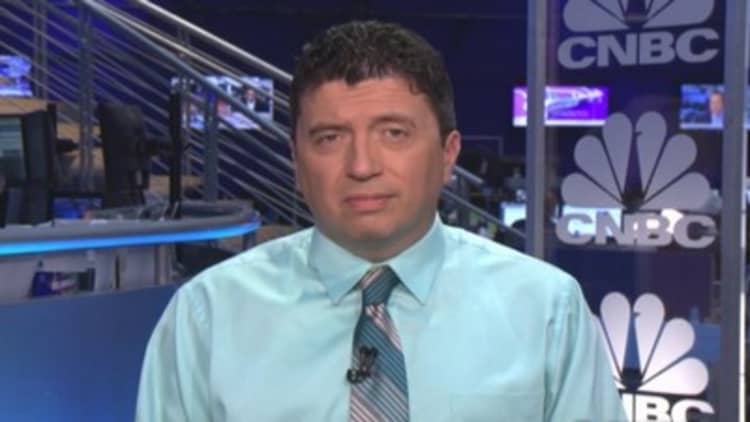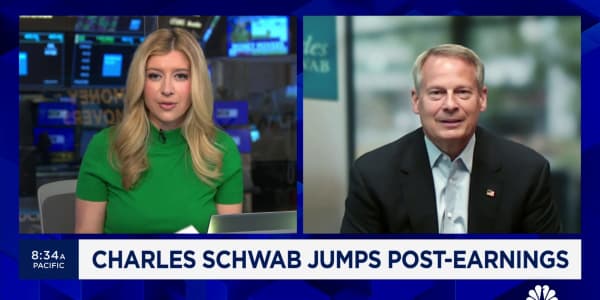
At the end of the day, it's really all about the Fed for most investors.
Forget Ukraine, forget Israel—forget pretty much everything else, in fact. When it comes to what investors think will spoil the 6-year-old bull market, most point directly to the Federal Reserve.
"Everybody I talk to to, every new prospect and client, they think the same thing: Another crash is around the corner and they want to be prepared for it," said Keith Springer, who runs Springer Financial Advisory in Sacramento, California. "Everyone believes that ... the Fed has created this bubble, because that's what they've done for the last 25 years is create bubbles. And bubbles don't deflate—they burst."
That's some pretty apocalyptic talk considering how resilient stocks have been since the dark days of the financial crisis. Springer himself believes there's too much fear in the market.
Yet a survey released Thursday by New York-based brokerage ConvergEx helps confirm the sentiment.
Read MoreFed unswayed by growth, keeps easing in place
Of the 236 market participants who responded, Fed policy outweighed, with 51 percent of responses, every other macro factor combined when it came to evaluating probable causes of near-term market volatility. That's more than the bloody strife in Ukraine (14 percent) or Israel (16 percent), more than what other central banks do (4 percent), and more than the catch-all "other" category (15 percent), all rolled into one.
In a similar vein, respondents strongly agreed that markets are too complacent about the threats, in whatever form they take. Asked to describe the level of apathy toward threats, 50 percent replied "complacent" while 16 percent said "much too complacent."
Put the heavy reliance on the Fed's ability to manage the economy with worry from the professionals surveyed by ConvergEx over market complacency and it adds up to a potentially jarring scenario.
"People talk about a bubble in stocks or biotech or a bubble in bonds—if there's a bubble right now it's a bubble in the confidence of central bankers," said Gary Flam, portfolio manager at Bel Air Investment Advisors in Los Angeles. "It's just the belief that they will solve all of life's ills."
Read MoreFed up? Janet Yellen facing challenges from within
Flam believes the ConvergEx respondents were correct in worrying about whether the unprecedented moves the Fed—along with its global counterparts—has made in creating trillions in liquidity and keeping short-term interest rates anchored near zero for nearly six years.
"If there's anything that occurs to share investors' confidence in central banks, that's going to have some serious implications," he said.
The influence extends beyond the stock market, which has surged about 190 percent during the operations of central banks, and into domestic and foreign government bond markets.
Flam points out that Spanish yields are trading below U.S. bonds despite the former's financial woes.
"You want to tell me that's based on fundamentals, or on what central bankers are doing?" he said, pointing to European Central Bank President Mario Draghi's famous 2012 "whatever it takes" pledge to support euro zone sovereign debt.
Read MoreGreenspan:Stocks to see 'significant correction'
Nick Colas, ConvergEx's chief market strategist, compared the central bank focus to the show "Seinfeld," which was famously "about nothing." The Fed obsession, he suggested, is about one thing but perhaps the market has more to ponder.
"Other factors—geopolitical risk in the Middle East, for example—have just as strong a track record of roiling capital markets as a clumsy Federal Reserve," Colas said in a note. "So even if this is a show about nothing, you have to worry about something. Or more than one thing, really."
—By CNBC's Jeff Cox






